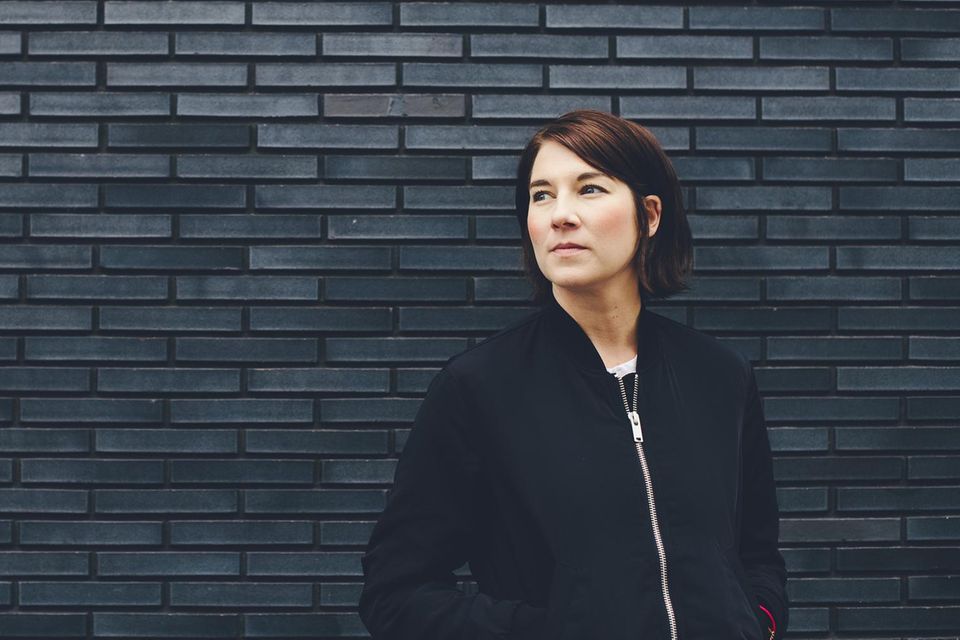Lovesickness is painful, sometimes even existential. How we can overcome it and grow with it, Michèle Loetzner explains to us with a lot of humor and sensitivity in her manual for broken hearts.
There are people who have never really been lovesick, really. Somebody who feels like a little death that you don't know how you can ever be better off without the other. Who you think will never, never, never stop. These are mostly friends who either have never really been in a relationship or those who have been with their partner for ages. It then becomes difficult for them to understand that lovesickness is one of the worst feelings one can have.
The thoughts revolve around the same thing: What is he doing right now? Was that the right decision? Could I have done more? I miss him so much … It doesn't matter whether you are the one who has left or the one who has left. Because in many cases both of them suffer greatly from the loss of someone with whom they have spent a lot of time at least for a while. Michèle Loetzer reveals in her book "Lovesickness coping with in 99 days" what you can do to make lovesickness go away faster. With a lot of humor, sensitivity and small exercises for each of the 99 days, she leads us out of lovesickness and back to ourselves.
Lovesickness only goes away when you go through it.
It's a bit like a workout to build muscle again against grief, and ultimately defeat it completely. Day by day and step by step, Michèle Loetzner accompanies broken hearts on their way out of the pain and back to ourselves. Even if every day feels incredibly long, you at least have the moment with its two pages from the book that know us let: You are not alone. For example, using the following scenario, a situation that we all know – you have already done a few days and suddenly a message from him. This is what Michèle Loetzner advises in her book "Overcoming Lovesickness in 99 Days":
"I just wanted to ask how you are."
"What are you doing?", "I'm thinking of you."
Has there been a text message like this before? And how long did you stare at the display after that? Or did you give in to the impulse and respond immediately? And when you answered: What did you write? Did it lead to a conversation?
So many questions. And probably very unsatisfactory answers. It is best not to react to something like that, but of course the inner desire is almost invincible. After all, you miss him. And apparently you him too. At least that's what it looks like. And with some distance, he may have thought and realized that you are the only woman he would ever want to be with. At least that's the little Hollywood voice in your head.
She whispers: "Maybe everything will be okay again after all?"
Nope. It is much more likely that he, too, will not cope with the new situation and will briefly look for a stop in the form of resonance. What may temporarily feel good will soon pull you down even deeper. Namely exactly when the conversation suddenly breaks off and you obsessively try to find out on all channels: why, why, why.
Hold on!
It's really hard, but don't try to answer. Think about biochemistry! If the conversation is already in progress, end it and stay in control of the conversation. You don't have to get nasty. A "I just need calmness in my head. I'll get in touch when I can speak again" certainly does too.
How can you distract yourself from the impulse to answer him?
- to go swimming
- Set the phone to airplane mode and Eat, Pray, Love watch (yes, cliché, so what?)
- Call your best friend
- Go to the hairdresser spontaneously
- Choosing a motif for a new tattoo
- Donate money to sea rescue
- Go to the hardware store and buy tomato seedlings (at least something that is alive …)
- Plan a trip (to a stupid place as possible)
And then ask yourself the question: What quality do you want for yourself right now?

Michèle Loetzner was born in Heidelberg in 1982 and studied literature, English and linguistics at the LMU Munich and the University of Helsinki. She works as a freelance journalist, copywriter and concept designer a. a. for the Süddeutsche Zeitung, Plan W, Die Welt, Die Zeit and women's magazines such as Cosmopolitan, Freund or Glamor. Michèle Loetzner lives in Munich. ›Overcoming lovesickness in 99 days‹ is her first book and was published by Dumont Verlag.
